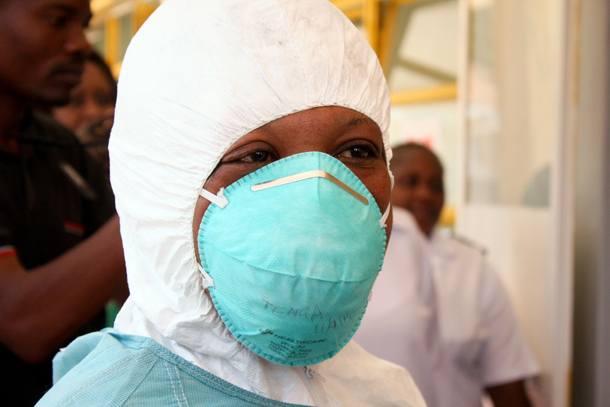
It has become clear that no country in the world is prepared enough to stop Ebola from landing on its borders. In the beginning, it was believed that only poor countries in Africa were prone to an outbreak of the disease.
NewsDay Editorial
But this was proved wrong when cases emerged in the United States and Spain.
Thomas Eric Duncan, a Liberian national, managed to fly into the US from his homeland while already infected by the disease. He died on Wednesday this week.
The fact he was able to fly undetected into a country with one of the most sophisticated health systems in the world means a lot has to be done to curb the spread of the epidemic.
The fact that Duncan later died also raises lots of other questions especially considering that the US had successfully treated two of its citizens who had gone down with disease while working with Ebola patients in West Africa.
In Madrid, Spain, a nurse’s assistant is in isolation after contracting the disease while caring for another Spaniard who had worked with sick people in West Africa. She became the first person to contract the disease outside Africa.
Spain’s Health minister Ana Mato told Parliament that Spain was going to revise its protocols for handling Ebola.
- Chamisa under fire over US$120K donation
- Mavhunga puts DeMbare into Chibuku quarterfinals
- Pension funds bet on Cabora Bassa oilfields
- Councils defy govt fire tender directive
Keep Reading
Spanish Prime Minister Mariano Rajoy, while urging calm, boasted the Spanish health system was one of the best in the world, but it was not good enough to stop this case. It may just be that other people in Madrid have been infected.
A recent map shows countries around the world where Ebola can spread in the next few weeks. These include countries as far-flung as Australia and the better part of Western Europe and Canada.
In fact, a volunteer nurse is being monitored inside a Queensland hospital in Australia. She had worked with Ebola-infected people in West Africa.
More frightening now is the prospect that Ebola could be spread through the air. Experts warn that the virus, very probably, has already mutated and become airborne, meaning it could be spread through breathing.
Up to now, conventional wisdom said it was spread only through bodily fluids that include blood, sweat, vomit, faeces, urine, saliva or semen of an infected person who is showing symptoms.
There was an Ebola scare in Harare yesterday when a Harare Polytechnic student, who came from the Democratic Republic of Congo recently, went down with an illness with signs and symptoms that resembled Ebola’s. She was bleeding, had a high temperature and was vomiting.
The government’s response was immediate. She was transferred from the country’s biggest referral hospital, Parirenyatwa, and isolated at Wilkins Infectious Diseases Hospital. Her situation became a test case on the country’s response in case of an outbreak.
The Ministry of Health should be commended for their response, but they should never be under any illusion their methods are foolproof.
The only sure way to contain the outbreak if it happens is to ensure people have enough information about the disease so that they don’t panic and know how to behave in the middle of an outbreak.











